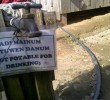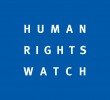MANILA — The Philippines is now Asia�s largest rice importer as a result of agricultural trade liberalization coupled with state neglect, and this threatens the country�s food security and sufficiency, according to independent think-tank IBON Foundation.
Data from the National Food Authority showed that from 1984 to 1994, the country imported an annual average of 151,588 metric tons (MT) of rice. But from 1995, when the Philippines became a member of the World Trade Organization (WTO) to 2006, rice importation shot up to an annual average of over 1 million MT, a 587% increase.
Trade liberalization has also worsened the problem of small-scale palay farmers in the country, which government has failed to address. Rice farmers continue to be saddled with problems such as high production costs, low palay prices, inadequate irrigation and other facilities, and inaccessible credit. It is thus not surprising that rice production has not increased significantly over the past decade.
The urgency of the problem requires collective action on the part of rice farmers and other concerned sectors in order to preserve Asian farmers’ traditional rice culture. Farmers� groups recently concluded the Week of Rice Action campaign, which brought together farmers, local communities and other concerned groups to discuss and highlight the value of rice culture and ecological agriculture, as well as threats of landlessness and genetically modified rice.
Rice is a staple food of Filipinos and the country should have the self-reliance to produce it. Instead of reactive and short-term feeding programs, the government should address the problems of farmers and other food producers in order to increase productivity and ensure the country�s food security.
IBON Foundation, Inc. is an independent development institution established in 1978 that provides research, education, publications, information work and advocacy support on socioeconomic issues. (Ibon Foundation press release)
Food









